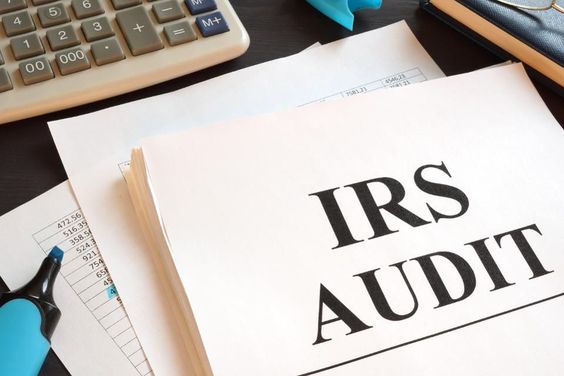Tax season can be a stressful time for many individuals and businesses alike. The last thing anyone wants is an IRS audit. While audits are relatively rare, certain red flags can increase your chances of catching the attention of the Internal Revenue Service. In this blog post, we’ll explore some of the top red flags that might raise eyebrows at the IRS and discuss how to avoid them.
1. Inconsistent Income Reporting
One significant red flag that might trigger an IRS audit is inconsistent income reporting. This can happen if your reported income doesn’t align with the income information the IRS receives from other sources, such as employers, financial institutions, or clients. Ensure that all income sources are accurately reported on your tax return, including wages, freelance income, and investment gains.

It’s crucial to double-check the information provided by third parties, like 1099 forms, to avoid discrepancies. Any inconsistencies in your reported income can lead the IRS to scrutinize your tax return more closely.
2. Claiming Unusual Deductions
While claiming deductions is a standard part of reducing your taxable income, certain deductions may raise eyebrows at the IRS. Claiming unusually high or questionable deductions compared to your income level or industry standards can increase your audit risk.

Common areas of concern include inflated business expenses, excessive charitable contributions, or unreimbursed employee expenses. Make sure that all deductions are well-documented and supported by legitimate receipts or records. If your deductions seem disproportionately large, it might be wise to seek advice from a tax professional.
3. Home Office Deductions
The rise of remote work has led many individuals to claim home office deductions. While this deduction is entirely legitimate, it can be a red flag if not handled correctly. The IRS pays close attention to the exclusivity and regular use of the claimed space.

To minimize your risk, ensure that your home office meets the IRS criteria. The space should be used exclusively for business purposes, and you should be able to provide evidence of regular and exclusive use. Keep detailed records of your home office expenses, such as utilities and rent/mortgage interest, to substantiate your deduction claims.
4. High Income Levels
While high income itself is not a red flag, unusually high income levels in relation to your reported deductions and credits can attract IRS attention. Individuals with substantial incomes are often subject to more extensive scrutiny, as the IRS may be more inclined to ensure that they are paying their fair share of taxes.

It’s essential to be meticulous with your financial records and ensure that your deductions and credits are accurate and well-supported. If you have a high income, consider seeking professional advice to navigate the complexities of the tax code and minimize your audit risk.
5. Cryptocurrency Transactions
The increasing popularity of cryptocurrencies has caught the IRS’s attention. Virtual currencies like Bitcoin are subject to tax reporting requirements, and the IRS is actively monitoring cryptocurrency transactions. Failing to report cryptocurrency transactions accurately can trigger an audit.

If you engage in cryptocurrency transactions, make sure you understand the tax implications and report them correctly on your tax return. Keep detailed records of your cryptocurrency transactions, including dates, amounts, and the counterparties involved, to avoid any discrepancies that might lead to an audit.
Conclusion
While the fear of an IRS audit may linger, being aware of potential red flags and taking proactive steps to address them can significantly reduce your risk. Accurate and transparent reporting, along with proper documentation, is key to navigating the complexities of the tax system. Consider consulting with a tax professional to ensure that your tax return is in compliance with current regulations and to help you navigate any potential audit challenges.
By staying informed and proactive, you can increase your chances of a smooth tax season and minimize the stress associated with the possibility of an IRS audit. Remember, the goal is not just to avoid an audit but to ensure that your tax return accurately reflects your financial situation and complies with all relevant tax laws.


